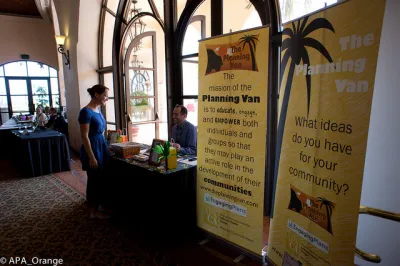One question I get asked a lot is if students should present at conference. In fact it is often more of a statement of intent rather than a question about whether it is useful. The answer, however, is not as clear as many students believe.

One question I get asked a lot is should students present at conference. In fact it is often more of a statement of intent rather than a question about whether it is useful. The answer, however, is not as clear as many students believe.
The basic issue is that there are many, many conferences these days, with low thresholds to entry or idiosyncratic selection based on the preferences of the organizer rather than quality. Presenting at a conference is not a big plus on your resume and for some people, who do a great deal of it without producing other work, it can raise questions about priorities. That is not to say it is a bad thing to do but it is not the unmitigated positive that some might assume.
Of course, there are good reasons students make such presentations.
- You can get practice in presenting in public.
- It can create a deadline.
- In some settings one can get useful feedback.
- Depending on who else is there, and how well it goes, it can provide contacts for jobs.
- It can publicize the academic program where the work was done.
- Going to a conference can give you a sense of professional norms.
These days there is such an information overload that there is a real question about whether one needs an additional information forum, however.
Of course students also ask about attending a conference and that raises a number of related questions:
- Is it an expensive conference with deep discounts for students—like the APA national conference? In this case going as a student has benefits.
- Will you learn new things or will it just cover things you can find out elsewhere? In the context of business conferences American Express suggests one metric is would “you have too much to share for a 20-minute presentation” to colleagues?
- Will you actually make contacts for jobs or at least get to know the job market better?
- Can you get ideas for improving your work?
- Can you network with other students in a way that is productive and really would not be possible via other means?
In the current period with so many channels of communication my sense is that the idea of the conference needs to be rethought. Asking serious questions about how useful such venues are is a good first step for students.

National Parks Layoffs Will Cause Communities to Lose Billions
Thousands of essential park workers were laid off this week, just before the busy spring break season.

Retro-silient?: America’s First “Eco-burb,” The Woodlands Turns 50
A master-planned community north of Houston offers lessons on green infrastructure and resilient design, but falls short of its founder’s lofty affordability and walkability goals.

Delivering for America Plan Will Downgrade Mail Service in at Least 49.5 Percent of Zip Codes
Republican and Democrat lawmakers criticize the plan for its disproportionate negative impact on rural communities.

Test News Post 1
This is a summary

Test News Headline 46
Test for the image on the front page.

Balancing Bombs and Butterflies: How the National Guard Protects a Rare Species
The National Guard at Fort Indiantown Gap uses GIS technology and land management strategies to balance military training with conservation efforts, ensuring the survival of the rare eastern regal fritillary butterfly.
Urban Design for Planners 1: Software Tools
This six-course series explores essential urban design concepts using open source software and equips planners with the tools they need to participate fully in the urban design process.
Planning for Universal Design
Learn the tools for implementing Universal Design in planning regulations.
EMC Planning Group, Inc.
Planetizen
Planetizen
Mpact (formerly Rail~Volution)
Great Falls Development Authority, Inc.
HUDs Office of Policy Development and Research
NYU Wagner Graduate School of Public Service





























